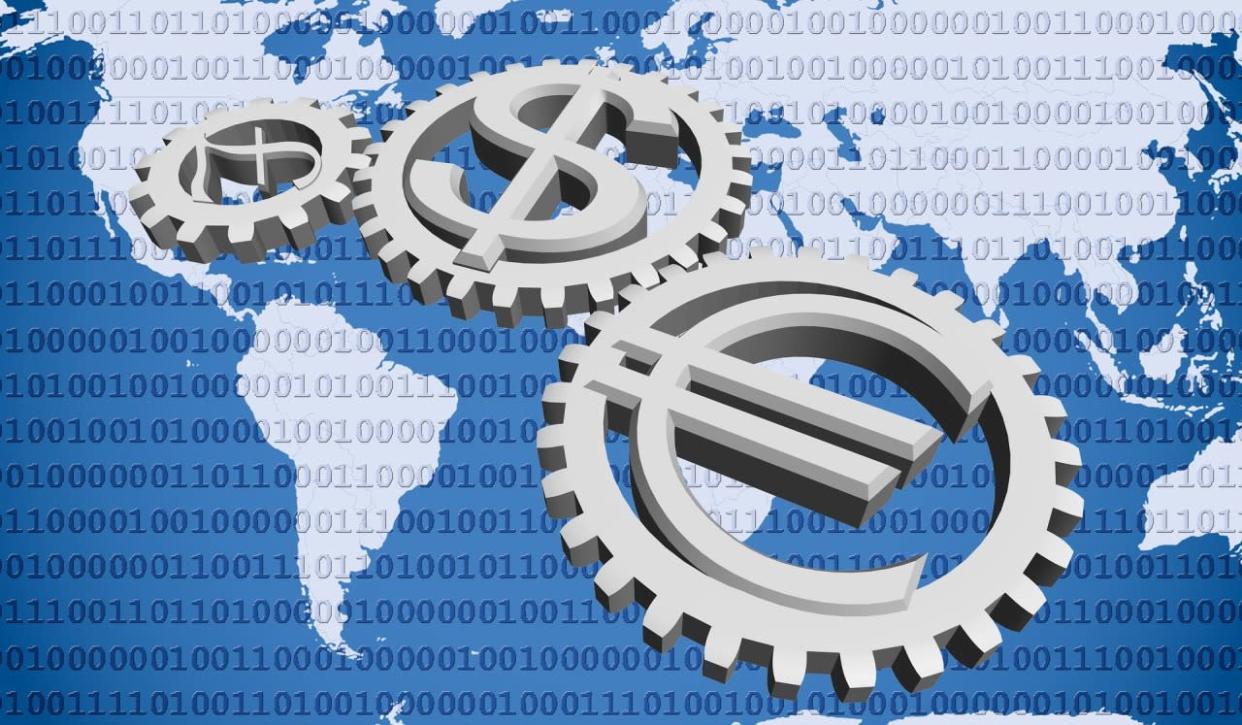What’s Hobbling Global Economic Growth?

Every now and then we hear of the phrase “slowing global economy”, affecting trade and growth worldwide. But, there are no tell-tale signs of it. Instead it’s just figures announced by the World Bank, International Monetary Fund (IMF) and governments of various nations from time to time that point towards the fact.
In April, for example, the IMF revised downwards its growth forecast for this year by 0.2 percentage point from its earlier projection in January to 3.2%. In June, again, the World Bank downgraded its 2016 global growth forecast to 2.4% from the 2.9% it estimated in January. So, what are the reasons for such weak figures and a bleak outlook?
Let’s count the factors we can pin the blame on.
2008 Meltdown
With investment banking giant Lehman Brothers declaring itself bankrupt in September 2008, markets and economies around the world began a downward spiral. The fallout from it is still felt, even after eight years! Though stock markets have rallied, it’s mostly on account of aggressive interest rate cuts – which induces businesses and consumers to borrow money for investment and spending purposes – by most central banks of the world. In fact, bank rates were almost brought down to zero in the US and UK and it became negative in Japan and Europe in the wake of the collapse. Since then they have stayed at rock-bottom levels.
This is because most economies are struggling to pick up steam till this date. The US, even though, seemingly better off, is still plagued by sluggish GDP growth; Eurozone is battling high unemployment and low investment; China’s growth has slowed down drastically and is threatening to derail other countries’ as well.
Slackening Demand
Not too long back, China was hailed as the engine for global growth. With rapid industrialisation and urbanisation it had gone on to become the largest market for commodities, industrial equipment and raw materials like coal, iron ore and oil. For three decades, on the back of robust exports and real estate and infrastructure development, it clocked a double digit growth rate – around 10 percent.
It even bucked the recession which saw the US and most of Europe’s economy going for a toss. Its government pushed for real estate and infrastructure projects to stimulate the economy and stave off external headwinds. Its demand for resources didn’t wane and it remained a lucrative market for commodities.
But, in the process it borrowed heavily and recklessly from banks, which are mostly state owned in China. This resulted in mounting debts. Meanwhile oversupply and high real estate prices, led to the bursting of the housing bubble. The economy slowed down in 2014, and in 2015 it saw the weakest growth rate since 1990; it stood at 6.9 percent. The dismal domestic economy affected growth of its important trading partners too like Brazil and Russia. The countries grew exponentially by supplying raw materials to China, but with its slowdown, their exports tanked and they entered into a recession.
Political Turmoil
The International Monetary Fund considers the geopolitical concerns in Brazil, Europe and Middle East as one of the reasons for a gloomy global economic outlook.
The fifth-most populous country in the world, Brazil, for instance, has been in deep recession not just because of China’s slowdown but also on account of endemic corruption and political instability which saw impeachment of President Dilma Roussef in April and a new President Michel Temer in her place.
The Middle East crisis has shown little signs of abating so far and has spilled onto Europe with migrants streaming in from Syria and Iraq in huge numbers to the continent, especially to Greece.
Eurozone too has not yet completely recovered from the 2008 financial crisis and is mired in debt. Talking of debt, Greece, Portugal, Spain, Italy and Ireland immediately come to mind. Their inability to payback bondholders resulted in their being bailed out by the IMF and European Union. A series of longer term refinancing operations had to be launched by the European Central Bank to prevent the economies from sputtering. And, more recently, with Brexit (a vote by the people of Britain to move out of the European Union), there is more uncertainty in the offing.
US Economy
Relatively more stable than its counterparts, the US economy still cannot be said to be on a very strong footing. A strong dollar and subdued global demand has affected its exports. Besides, the glut in oil and gas production has put pressure on their prices, putting many drilling companies with huge debts to service under severe stress. The companies had taken loans to launch new projects or expand existing ones. Along with the drilling industry, other manufacturing entities supplying equipment to it have also seen their bottom lines affected badly.

